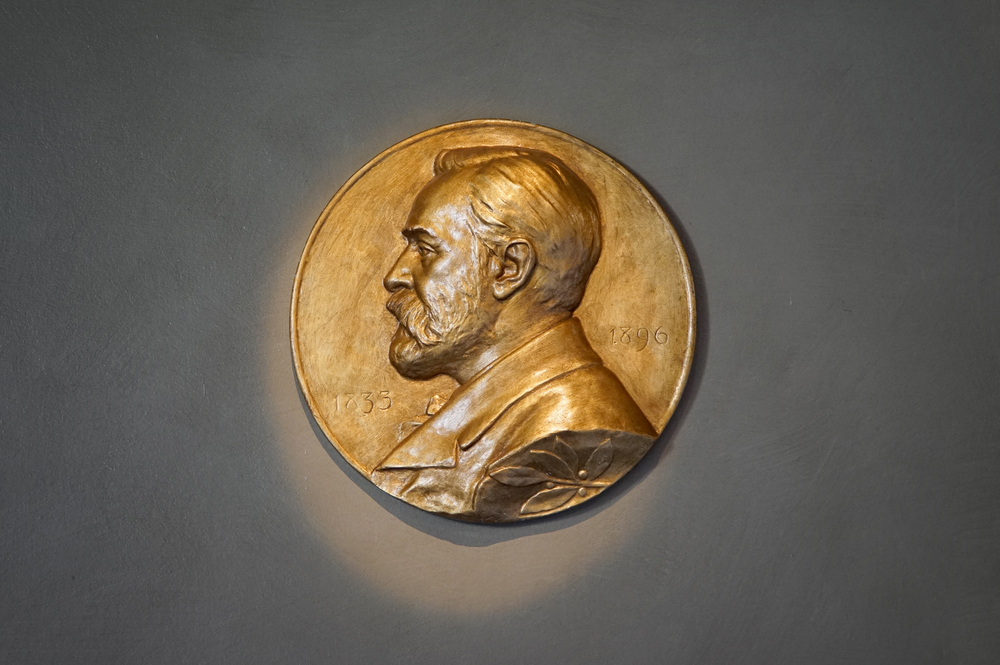The usual case for free trade is not the best case for free trade. The usual case is based on static efficiency, meaning making better use of a fixed set of resources. Economists use the term comparative advantage to describe how, if humans choose to specialize and trade with one another, each can end up better off than if they produce everything for themselves.
But trade has an even more important role to play in what economists have come to call dynamic efficiency, which is the ability of an economy to exploit innovation and increase living standards over time. This dynamic efficiency is a central concern of the economists who shared the 2025 Nobel Prize: Philippe Aghion, Peter Howitt, and Joel Mokyr.
Aghion and Howitt explored the process that Joseph Schumpeter famously labeled creative destruction. One hundred years after Schumpeter, we see that process all the time in the realm of computers, communications technology, and software. Mainframe computers were displaced by personal computers and the Internet, landline phones were displaced by smartphones and cellular communication, and artificial intelligence now threatens to upend many industries.
Mokyr was recognized for his study of economic history, particularly the Industrial Revolution. He pointed out that technology improves through a virtuous cycle in which practical inventions inspire curiosity, leading to scientific discovery, enabling improvements to practical inventions.
Mokyr also emphasized how the process of innovation and growth can be stifled by protectionism. It is dynamic efficiency that is stymied when barriers to trade are erected. That is an important lesson that today’s policy makers seem reluctant to learn.
For our 2011 book, Invisible Wealth, Nick Schulz and I were fortunate to be able to include an interview by Nick with Mokyr, as well as interviews with other proponents of dynamic efficiency, including Douglass North, Robert Fogel, and Paul Romer. Given his recent recognition with the Nobel Prize, the themes from that interview are worth revisiting.
Mokyr argues that the Enlightenment included a rebellion against economic protectionism.
I argue in my book that one of the things that happens in eighteenth-century Europe is a reaction against what we today would call, in economic jargon, “rent-seeking,” and that this, to a great extent, is what the Enlightenment was all about…It was about freedom of religion, tolerance, human rights—it was about all of those things. But it was also a reaction against mercantilism…
Adam Smith isn’t, you know, as original as people sometimes give him credit for…All these people were saying essentially the same thing: we need to get rid of guilds, monopolies, all kinds of restricted regulatory legislation. And above all, you need free trade, both internal—which Britain had but the Continent did not—and international….
…when you look at the few places in Europe where the Enlightenment either didn’t penetrate or was fought back by existing interests, those are exactly the countries that failed economically. You think of Spain and Russia, above all. (p. 119–120)
Mokyr argued that ideas spread through the circulation of people.
Much of the communication about technology is in fact through personal transmission…You can only learn so much from books, even now. (p. 122)
Tacit knowledge is acquired in person.
Mokyr warned that protectionist interests always lurk within a prosperous society.
Looking back at the record, it is quite clear that nobody has held technological leadership for a very long time. The reason for that is primarily that technology creates vested interests, and these vested interests have a stake in trying to stop new technologies from kicking them out in the same way that they kicked out the previous generation…And they have all kinds of mechanisms. One is regulation, in the name of safety or in the name of the environment or in the name of protection of jobs. They will try to fend off the new to protect the human and physical capital embedded in the old technology. (p. 123)
Without the pressure of international trade, an industry can stagnate.
Let’s look at the American automobile industry in the 1950s. Absolutely zero technological change…in the late 1960s they were still making things like the Vega and the Pinto, which were the worst cars ever made…
But then something happened: the Japanese showed up…the Japanese made better cars from better materials. They made them cheaper. The cars lasted longer. And guess what? Today’s American cars are far, far better than they were in the late 1950s to early 1970s—not because Americans couldn’t have done it earlier, but because openness forced them to do it. (p. 126)
Today in America, many politicians are listening to the siren song of the restrictionists. Industrial policy, which means protectionism, is popular. Globalization and neoliberalism are bad words.
But if the past is any guide, anti-globalization is going to degenerate into crude special-interest politics. Instead of dynamic efficiency, we will end up with economic stagnation. The 2025 Nobel Laureates can remind us of that.
[1] Quoted from an interview in Arnold Kling and Nick Schulz, Invisible Wealth, p. 119.[2] Invisible Wealth was originally published in 2009 as From Poverty to Prosperity
As an Amazon Associate, Econlib earns from qualifying purchases.



























